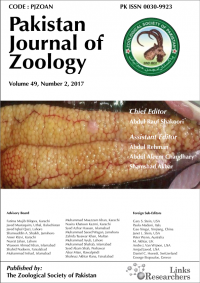Thyroid Abnormalities in Relation to Type 1 and Type 2 Diabetes Mellitus Patients in Quetta, Balochistan
Thyroid Abnormalities in Relation to Type 1 and Type 2 Diabetes Mellitus Patients in Quetta, Balochistan
Mohsin Ali1, Nargis Haider Kakar2, Rida Dawood3,4, Qurat-ul-ain Fatima5, Zunera Tanveer2, Shoaib Ahmad Malik6, Tauseef Muhammad Asmat1, Asadullah1, Muhammad Masood Tariq Kiani1 and Mohammad Zahid Mustafa1*
ABSTRACT
To share on other social networks, click on any share button. What are these?









